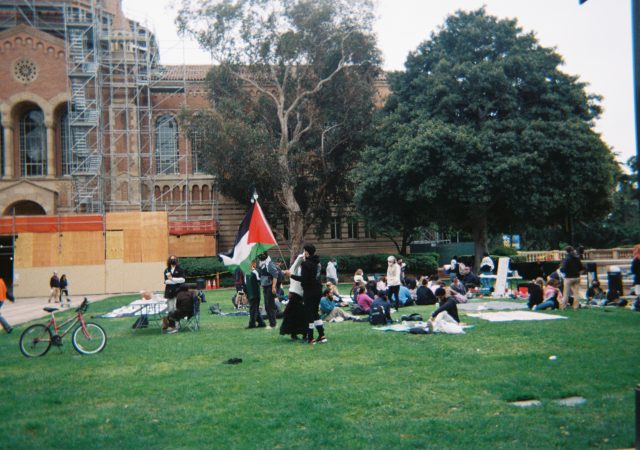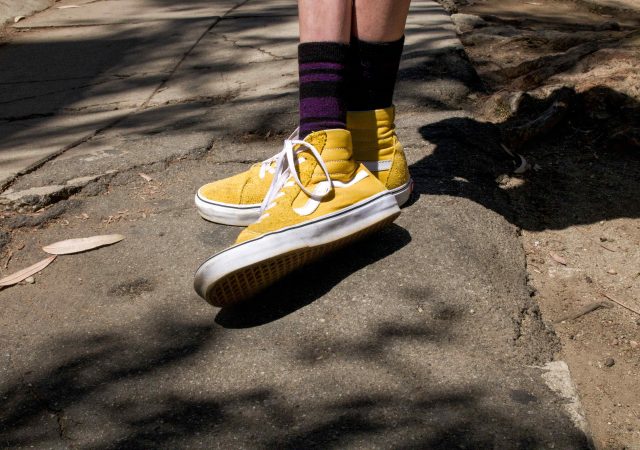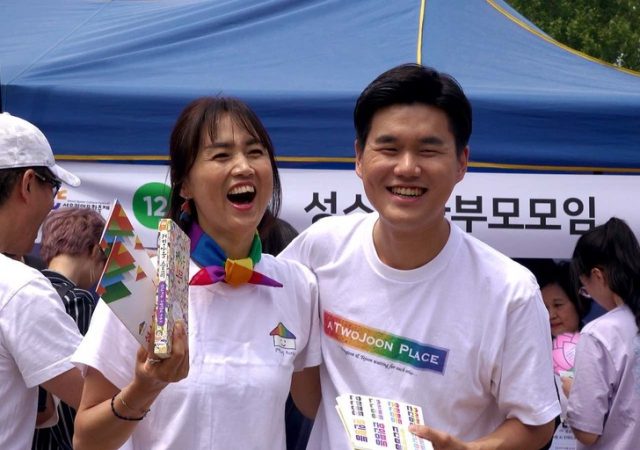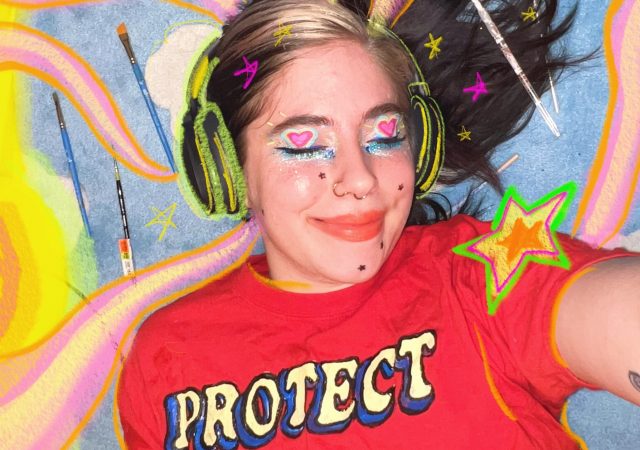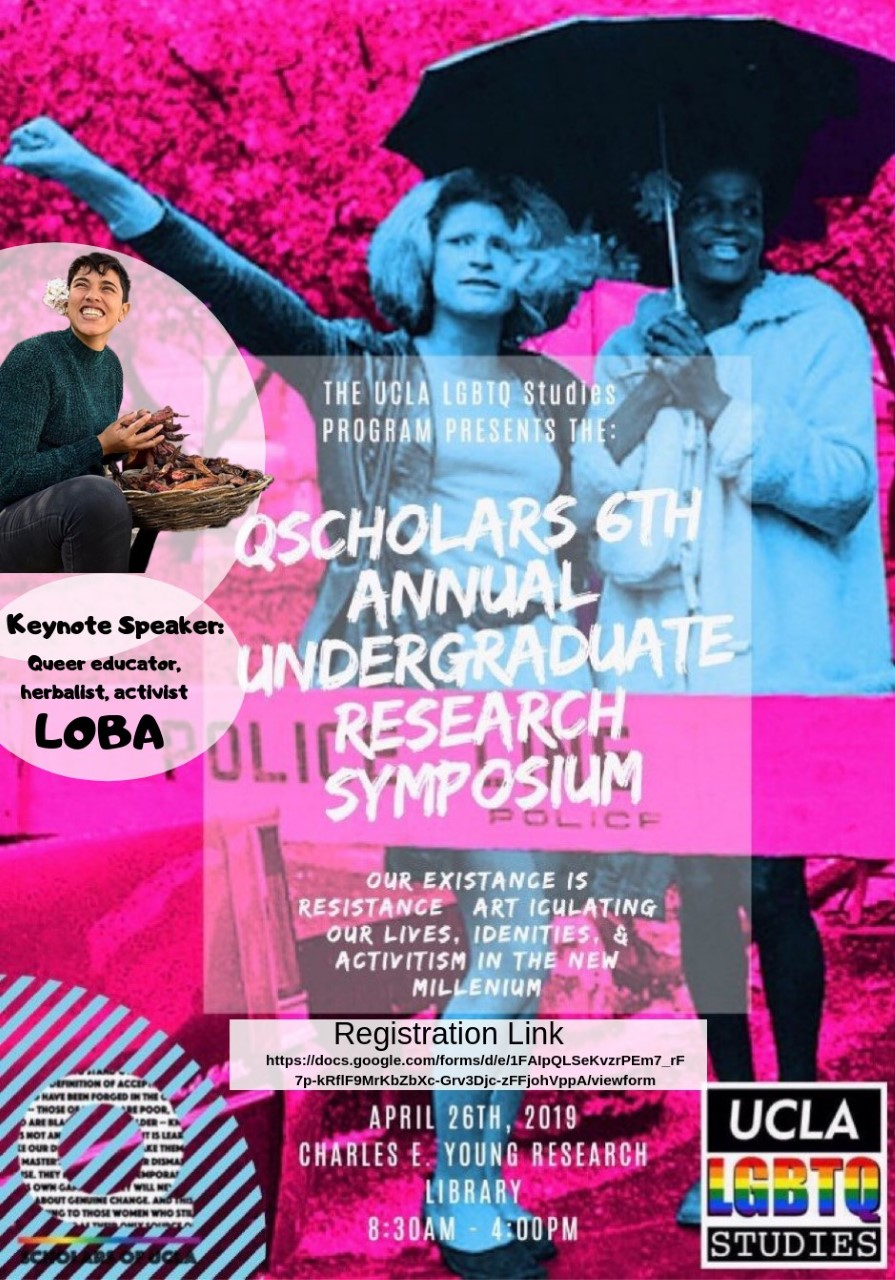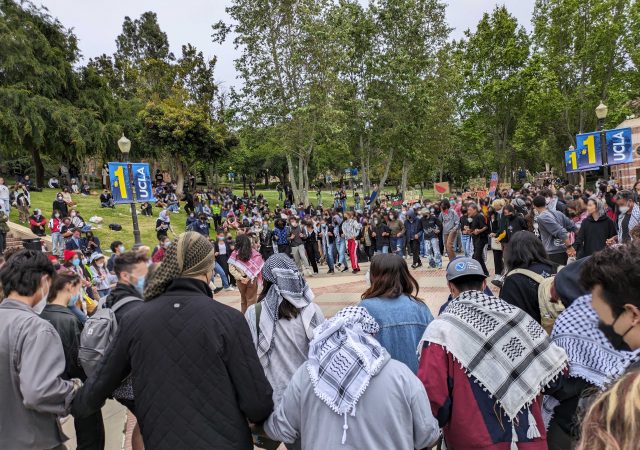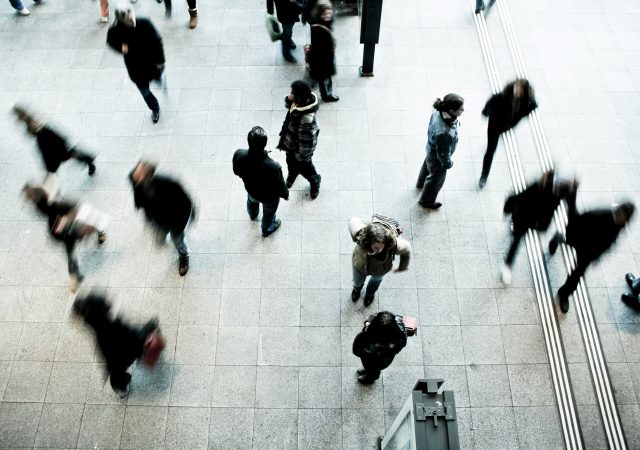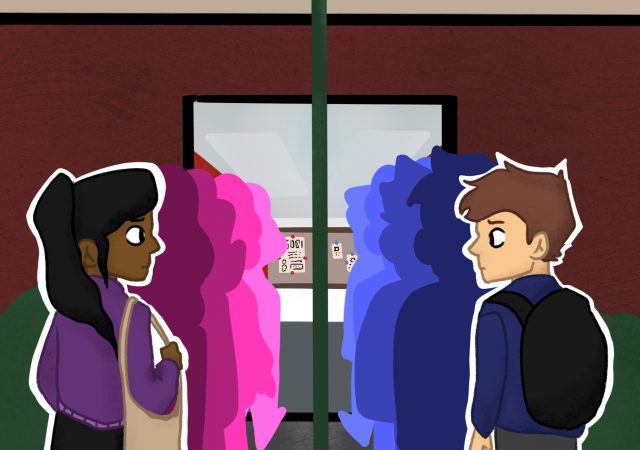The act of protest is one of risk. The university’s justification for sweeping the encampment on the basis of being disruptive overlooks the fact that the disruption was intentional. On May 2 — the night that police forcibly destroyed the encampment — 210 arrested individuals were given a chance to walk away, but didn’t. They chose to remain because this act of resistance is the greatest power they have as students and civilians to affect this cause.
Happy Pride! Our Commitment to Palestine
Stonewall serves as a reminder of the power of the masses to disrupt an oppressive status quo.
Toloposungo: All Police Are a Gonorrhea
Daniela Maldonado Salamanca, a transgender Colombian sex worker activist and punk singer, spoke about queer resistance at the People’s University for a Liberated Palestine on May 20. Hosted by the UCLA chapter of Students for Justice in Palestine (SJP), the People’s University offers a space “to foster our own learning and mutual support.” SJP established the People’s University following UCLA’s failure to protect and care for its people.
How a Queer Disabled Student is Fighting for Health, Safety, and Education
How many people do you notice in your lectures wearing masks? How many coughs do you hear? Even though federal and state government policies treat COVID-19 risk with little concern, health science research continues to demonstrate the necessity of masking to prevent its contraction. COVID is a multi-systemic, vascular disease that damages every system in your body. Each COVID-19 infection that you contract results in cumulative damage, weakening the immune system. Weakened immune systems aren’t able to fight off infection as readily, meaning that any sickness can potentially be life-threatening and disabling. Unchecked immune system damage forces constant sickness to be many people’s new reality.
A Trip in Westwood
UCLA made me disabled.
Don’t get me wrong, I’ve been ill my whole life. I was diagnosed with Marfan Syndrome at 18 months old, a rare genetic disorder that makes my connective tissue more elastic and prone to spontaneous breakage. I hear from every medical professional I see that I am a textbook marfanoid; there was even a photo of 6-year-old me on The Marfan Foundation’s “Signs & Symptoms” page for a decade. I am a literal poster child for my condition.
Why Pride This Year?
Picture this: it’s June 28, 1970, nearly a year after the monumental Stonewall riots, and you’re attending the first Pride Parade in New York City. Except it’s not a parade, and it’s not entirely about Pride: it’s the Christopher Street Liberation Day March. Here, we recognize the familiar names of Marsha P. Johnson, Sylvia Rivera, Miss Major Griffin-Gracy, and the lesser known names of the march’s organizers Craig Rodwell, Fred Sargeant, Ellen Broidy, Linda Rhodes, Brenda Howard and many more. Unlike today’s Pride Parade, this march in New York was dedicated to Gay Liberation in the forms of political speeches, demonstrations, and gay visibility.
Being My Mother’s Son: A Review of Queer Korean Documentary “Coming to You”
On May 5, 2023, UCLA screened “Coming to You” (“한글: 너에게 가는 길”) directed by Gyu-ri Byun (she/her), a groundbreaking Korean documentary about the mothers of queer adults in Korea. The documentary centers on the mothers, Nabi (she/her) and Vivian (she/her), who are members of PFLAG Korea (Parents, Families and Allies of LGBTAIQ+ People in Korea). Both women are cisgender and heterosexual. Prior to their children coming out to them, they held little to no knowledge about the queer community and harbored discriminatory opinions about queerness. Nonetheless, the documentary made no excuses for their past queerphobia and followed their journeys into wholehearted queer activism.
The Homophiles, the Liberationists, and Us
Activism is rough, and we throw a lot of words around at each other. “Assimilationist!” “Unrealistic!” “Conformist!” “Aggressive!” LGBTQ+ activism has not only been met with virulent backlash from the cisgender, heterosexual side of society but also has been plagued by intra-community conflict on the best ways to do things. The tension surrounding LGBTQ+ activism boils down to a push and pull between outright rebellion and more incremental forms of justice. This conflict is not specific to the LGBTQ+ community; all sorts of movements spanning different identities and ideas encounter the contentious dichotomy between abolition and reform.
Art as Activism with Rhiannon Salt: Disability Pride (Month) Spotlight
Photos and Artworks by Rhiannon Salt (They/He) **Content Warning: brief mentions of abuse and toxic relationships, mentions of dissociating and other symptoms of chronic illness and mental illnesses** This article will highlight the moments when the CW is relevant, but…
LGBTQ+ Research Symposium Uplifts Underrepresented Scholarship
On Friday, April 26th, the UCLA LGBTQ Studies program will present its 6th annual Q Scholars Undergraduate Research Symposium entitled “Our Existence is Resistance: [Art]iculating our Lives, Identities, and Activism in the New Millennium.” The symposium offers a safe space…

